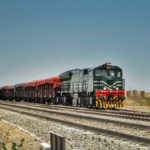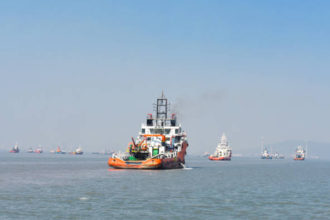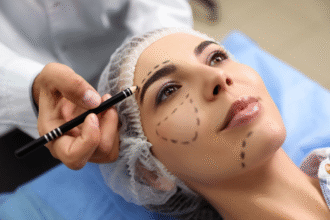Arriving at the International Criminal Court (ICC) detention center in The Hague on Wednesday, former Philippines President Rodrigo Duterte faces accusations of crimes against humanity. His arrest and extradition followed an unexpected line of events, with his fans gathered outside the facility, waving national flags and yelling, “Bring him back!” as his vehicle passed through the towering iron gates. International attention has been paid to the Duterte ICC case, which begs issues on justice and responsibility for former presidents.
Just before arriving in the Netherlands, the 79-year-old leader unreservedly defended his contentious “war on drugs,” for which the ICC says there are “reasonable grounds” to prosecute him with murder. Thousands of claimed small-time drug dealers and users were executed in his direction without a trial. Although official counts show the death toll as 6,000, human rights advocates contend that the actual count could be in the tens of thousands.
Duterte argues that his anti-drug dealer campaign helped to clean the nation of crime. Rights organizations have often claimed, meanwhile, that the campaign was riddled with police mistreatment and disproportionately targeted young men from underprivileged urban neighborhoods.
How did Duterte come to be the first Asian former head of state targeted by the ICC?
Being the first Asian former head of state to be charged by the ICC and the first suspect flown to The Hague, Duterte has created history. Given its reliance on state collaboration, the Duterte ICC case marks a momentous occasion for the court as it battles with implementing its decisions.
His extradition occurs at a period when Philippine political dynamics have changed drastically. Until lately, the notion of Duterte being tried by the ICC appeared unthinkable—especially after his daughter, Vice President Sara Duterte, teamed with President Ferdinand Marcos Jr. to form the potent “Uniteam,” which scored a clear victory in the 2022 elections.
Previously, Marcos has dismissed the concept of working with the ICC. But new political conflicts between his government and the Duterte family have caused an unanticipated change. Duterte’s arrest and extradition highlight how rapidly political allegiances may shift—even for someone formerly thought to be untouchable.
What part did social media play in Duterte's extraction?
Social media recorded most of Duterte’s imprisonment and trip to The Hague. His daughter, Kitty Duterte, and his aides offered real-time reports, making his jet the most tracked on flight radar.
“It was me that oversaw our military and police enforcement. In one of many Facebook videos posted during his extradishment, Duterte said, “I said I will protect you and I will be responsible for all of this.”
The openness of his arrest and relocation has given the public unique access to what is usually a closed process. The world could see every element, including his meals on the hired jet.
Social media also helped both his supporters and critics to be mobilized. Although many Filipinos voiced worry over his trial, human rights groups strengthened demands for justice by using the public awareness of his extradition. Some legal experts believe that the high degree of public attention may impose greater pressure on the ICC to guarantee due process is followed in Duterte’s trial.
Does Duterte's detention enhance the ICC's credibility?
The Duterte ICC case shows that even influential people can be held responsible, therefore discouraging possible future atrocities. His case also sparks the discussion on the ICC’s involvement in respect to national sovereignty—a topic sometimes brought up by non-member states including China, Russia, and the United States.
Funding and operational assistance for the ICC come from among its 128 members. After granting arrest warrants for Russian President Vladimir Putin and Israeli Prime Minister Benjamin Netanyahu over suspected war crimes—cases unlikely to be enforced soon— Duterte’s high-profile extradition offers the court a much-needed triumph.
International Cricket Coach Recently sanctioned by former U.S. President Donald Trump for pursuing charges against Netanyahu, Prosecutor Karim Khan highlighted Duterte’s detention as a counterpoint to complaints about the court’s performance.
Many claim, Khan said, “international law is not strong.” “But international law is not as weak as some may imagine. When we gather together and form alliances, the rule of law can take front stage.”
Legal commentators think that the outcome of the Duterte ICC case could create a precedent for future prosecutions of leaders accused of crimes against humanity. Critics counter that the ICC still chooses which cases to pursue, frequently focusing on leaders from smaller or less politically significant countries.
What political ramifications follow from this in the Philippines?
Duterte’s detention has aroused major political controversy in the Philippines. While some view his extradishment as a long-overdue reckoning, others contend that it is politically driven. His allies argue that Marcos is using the ICC to eradicate Duterte’s influence in the country, while detractors of Duterte insist that the charges are justified.
Public opinion is still divided. While some Filipinos feel Duterte was only executing the law against drug-related offenses, others believe the Duterte ICC case is a step toward justice for victims of extrajudicial executions. Political experts speculate that his trial might affect the approaching elections, therefore influencing public opinions of candidates either in favor of or against Duterte’s punishment.
Additionally, the case may create a precedent for future leaders regarding accountability. Should Duterte be found guilty, it might create a legal structure discouraging similar human rights abuses by next administrations.
What Awaits Duterte in Custodial Detention?
Duterte will spend his 80th birthday at the ICC’s detention center, located in the dunes of The Hague. The complex, once a Nazi prison, provides detainees with private cells, computers, a library, and sports facilities. Should he be unhappy with the food offered, Duterte will be free to cook his own using a shopping list from the kitchen of the prison facility. Along with visitors, legal advice, and medical treatment, he will also have access to
His first court appearance is scheduled for the next few days when he will establish his identification, choose his chosen language for the proceedings, and admit the charges against him. Following a confirmation of charges hearing, judges will evaluate whether the prosecution has enough proof to move on to a trial.
If the allegations are upheld, the Duterte ICC case may take months to begin and years before reaching a final conclusion. For now, his appearance in The Hague represents a key moment in international justice and the ICC’s authority to hold leaders accountable for alleged crimes against humanity.
Duterte’s trial will test ICC authority and efficacy as the world observes. Though his extradition has already sent a strong message—no leader, no matter how strong, is totally beyond the reach of the law—whether justice is finally served is still to be seen.








